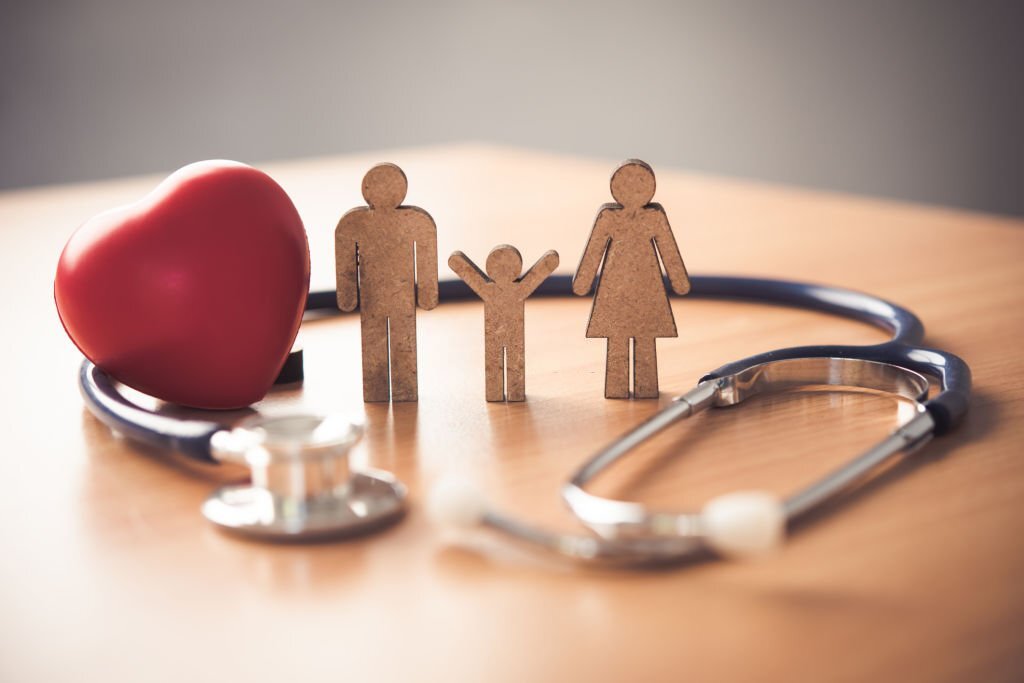You’ve probably heard folks discuss health insurance all the time. However, you may feel you don’t know anything about it. That’s fine since, to be honest, it may be a very perplexing issue.
But, like most things, health insurance is simple to learn and grasp the fundamentals of. That is what Health Insurance 101 will assist you with.
So, let’s go through some questions together. What is health insurance, and how does it function? And do you need health insurance?
What Exactly Is Health Insurance?
In essence, health insurance is a method of paying for medical expenses and health care costs. Most people cannot afford to pay for healthcare expenses out of pocket or with a debit or credit card.
Health insurance can help you pay your medical fees and get the necessary care.
There are two types of health insurance: private and government-run.
There are numerous types of health insurance programs. The government manages some plans. For example, you’ve probably heard of the government-run programs Medicare and Medicaid:
- Medicare – is health insurance for persons over the age of 65 and those under the age of 65 who are disabled. Find out more about Medicare >
- Medicaid – is health insurance for low-income people. Find out more about Medicaid >
Private health insurance coverage is also available. Many people receive private health insurance through employment, and self-employed persons frequently obtain private health insurance. Commercial health insurance normally pays a monthly fee to the health insurer; with government-run health insurance, there is frequently no monthly cost.
How Medical Insurance Works
When you have health insurance, your insurance company pays your medical bills first. Then, depending on the plan’s terms, they pay for a portion or all of the amount.
Health insurance is quite similar to auto insurance in certain ways. If your automobile is in a bad accident and requires extensive repairs, or if it must be replaced totally with a new car, car insurance will cover some or all of the costs. That’s not a bad thing because the expense of repairing or replacing your car could rapidly exceed the amount you have in your bank account.
Unlike vehicle insurance, however, health insurance covers far more than just the costs of a severe accident. Many types of “regular maintenance” for your body and mind, such as annual checkups, vaccines, preventative health care, and other types of care, are typically covered by health insurance. It’s the same as if your car insurance covered regular maintenance like oil changes and tire rotations.
Why Should I Purchase Health Insurance?
There are two general reasons to obtain health insurance:
- If you become ill, your health insurance will cover you.
- Health insurance can help you avoid getting sick in the first place.
Let’s investigate each of these explanations in greater detail:
As a Safety Net, Health Insurance
As a safety net, health insurance is vital. If you become ill or injured suddenly, health insurance can help cover expenditures you may not be able to meet on your own.
Health care can be very pricey. It can be a huge financial strain. Surgery, emergency treatment, prescription medicines, blood work, scans, and tests can quickly add up. They can even be so exorbitant that people become bankrupt or refuse to receive the care they need but are unable to pay for out of pocket because of the costs.
However, with health insurance, you are not facing these costs on your own; there is an insurance plan assisting you in covering the charges and navigating the complexities of medical bills.
Let’s face it: you don’t want to be dealing with medical costs while you’re sick, injured, in a hospital bed, or the emergency department. It’s wise to make difficult financial decisions, such as purchasing health insurance before becoming ill.
Illness Prevention
Another reason why having health insurance is crucial is that it makes it easier to avoid being sick in the first place.
Having health insurance makes it easier to obtain — that is, to locate and pay for – routine and preventive health care. This includes the following:
- Annual examinations
- Immunizations (flu shots, MMR, etc.)
- Blood tests and laboratory work
- Screenings and scans
All these things contribute to your overall health and the prompt diagnosis of any illnesses you may have.
Furthermore, health insurance assists in managing any chronic ailments, such as diabetes, heart disease, or depression. For these types of illnesses, health insurers often provide disease management programs. Additionally, they can refer you to professionals and additional resources. This makes it easier to remain on top of things and stay healthy.
Routine and preventive care is especially crucial when it comes to children. Children, newborns, and pregnant women require routine medical care to stay healthy and thriving. Early intervention prevents future issues and can even save lives.
Health insurance often covers mental and behavioral health care and physical health.
Is it Possible for Me to Afford Health Insurance?
Enrolling in a private health insurance plan normally necessitates the payment of a monthly premium. You are significantly more likely to be able to afford health insurance than you are to be able to pay for a surgery, illness, or emergency room visit out of your own money.
In order to attain a level of income, private health insurers typically provide a selection of plans with varied premiums.
If you cannot afford private health insurance, you may be qualified for government health insurance, such as Medicaid or Medicare. Alternatively, you may be qualified for subsidies (i.e., financial assistance) through the healthcare.gov Health Insurance Marketplace.
Cost-sharing
However, health insurance does not cover everything. Aside from paying your monthly premium, most insurance plans require cost-sharing. We’ll go over them and explain how they function below.
The deductible is the healthcare charges you must pay before your insurance plan begins to share the costs. So, if your plan’s deductible is $3,000, you must pay the first $3,000 in medical expenses before your health insurance company pays its half of the bill.
When you visit the doctor, your insurer may require you to pay a copay. There may also be a coinsurance arrangement in which you pay 20% of the cost of some medical expenses, and the insurance plan pays the remaining 80%. Copays and coinsurance normally kick in once you’ve hit your deductible (but they sometimes kick in before you’ve spent that amount).
Then there’s the out-of-pocket maximum (or maximum out-of-pocket). That is the amount of money that, once spent on health care costs in any given year, the health insurance plan pays for 100% of your health care bills. You only need to pay a monthly premium charge.
Here is an example of how it works with numbers. To make things simple, we’ll call it the “Ten Plan.”
Plan ten (example)
$10 Copay (after deductible met)
Coinsurance is 10%. (after the deductible is met)
$1,000 Deductible
The maximum out-of-pocket expense of $10,000
So, in the Ten Plan, in addition to paying your monthly premium, you will be responsible for the first $1,000 of your healthcare spending (i.e., your deductible). This includes medical appointments, lab testing, x-rays, surgery, and physical therapy. After that, you’ll only have to pay $10 for each doctor visit and 10% of all other healthcare costs.
Furthermore, if you spend $10,000 in a particular year, your health insurance plan will cover the cost of everything for the rest of the year. You only have to pay a monthly premium charge.
What if I don’t become ill? Don’t I Make a Loss?
“What if I sign up for health insurance and pay my monthly premium, but I don’t get sick and don’t receive any health care?” you may wonder.
That’s not exactly correct.
To begin, there are several health insurance benefits that you may use even if you are not sick like as immunizations and checkups, that will help you stay healthy.
Second, even if you don’t fall into an accident, have high healthcare costs, or need to use your healthcare benefits, you’ll have peace of mind knowing that if you became sick, you wouldn’t have to bear all those expenses on your own.
Ultimately, even if you do not use your health insurance benefits, your premiums fund those on your plan’s benefits and health care. And, if you get sick and need help paying your medical bills, the other plan members will assist you in the same way.









